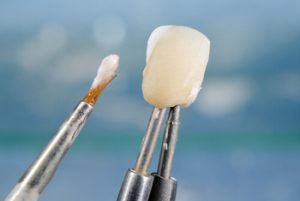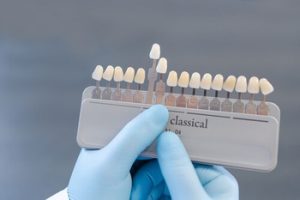Veneers Bali vs Australia: Unveiling the True Costs and Benefits

Dental veneers have rapidly grown in popularity, offering a transformative solution to those unsatisfied with their smile. As cosmetic dentistry advances, many individuals consider international destinations like Bali for their dental treatment. This article dives deep into the allure of “veneers in Bali” options, juxtaposing it against getting veneers in the heart of Australia.
Understanding Dental Veneers:
Dental veneers are custom-made, wafer-thin shells of tooth-coloured material—either porcelain or composite—designed to cover the front surface of teeth. Acting as a facade, they enhance natural teeth’ appearance, colour, shape, or size, catering to those with stained, cracked, or crooked teeth.
The Different Types of Veneers:
- Porcelain Veneers:
Crafted in a dental lab to perfectly fit an individual’s teeth, porcelain veneers boast durability and a natural appearance. Their semi-translucent property mimics the light-reflecting quality of natural teeth, offering an unrivalled aesthetic appeal.
- Composite Veneers:
Often referred to as direct or chairside veneers, composite veneers are applied and sculpted directly onto the tooth surface during a single dental clinic visit. They offer a quicker solution, with the composite material being layered upon and shaped in real time.
Application and Procedure:
 Getting veneers is typically a multi-step process. It starts with a consultation, followed by tooth preparation, where a thin layer of tooth enamel is removed to make space for the veneer. Next, an impression of the tooth is taken, which is sent to a dental lab if you opt for porcelain veneers. Temporary veneers might be placed until the permanent veneers are ready. Finally, the veneers are bonded to the tooth surface, giving it a renewed appearance.
Getting veneers is typically a multi-step process. It starts with a consultation, followed by tooth preparation, where a thin layer of tooth enamel is removed to make space for the veneer. Next, an impression of the tooth is taken, which is sent to a dental lab if you opt for porcelain veneers. Temporary veneers might be placed until the permanent veneers are ready. Finally, the veneers are bonded to the tooth surface, giving it a renewed appearance.
Care and Maintenance:
While dental veneers offer a renewed and pristine smile, they are not entirely maintenance-free. Regular dental check-ups, avoiding hard foods that might chip them, and maintaining good oral hygiene are paramount. With the right care, porcelain veneers can last up to 15 years, while composite veneers might need replacement in 5-7 years.
The Advantages of Getting Veneers in Australia:
Australia, with its world-class healthcare system and an impressive reputation in medical expertise, naturally stands out as a preferred destination for numerous medical treatments. Regarding cosmetic dentistry, and more specifically, dental veneers, Australia indeed has a lot to offer. Let’s dissect the advantages of dental veneers in this nation, rich in heritage and healthcare standards.
Pioneering Dental Expertise:
Australia is home to some of the globe’s leading dental professionals. Graduating from prestigious institutions and continually updating their skills through ongoing professional development, Australian dentists are at the forefront of cosmetic dentistry. Whether it’s porcelain veneers, composite veneers, or advanced treatment planning, patients can receive services that align with the latest global standards.
Rigorous Regulation and Safety Protocols:
One of the significant benefits of seeking dental treatment in Australia is the peace of mind that comes with stringent regulatory standards. The Australian Dental Association oversees dental care, ensuring that every dental clinic, from the bustling streets of Sydney to the serene coasts of Perth, adheres to strict safety and quality guidelines. This regulation ensures that every step, from the initial consultation to crafting veneers in a dental lab, is conducted with the utmost precision and care.
Comprehensive Follow-Up Care:
The journey doesn’t end once the veneers are bonded to your teeth. Proper post-treatment care is crucial to maintain the veneer’s lustre and ensure they fit comfortably. In Australia, the accessibility to the dental clinic where the treatment was received means that any necessary follow-up appointments or adjustments are just a call away. This proximity eliminates the potential hassle and costs of travelling internationally for follow-ups, as might be the case with veneers in Bali.
Superior Quality of Materials:
The material’s quality directly impacts dental veneers’ appearance, feel, and longevity. Australian dental clinics prioritise using the highest quality materials. The porcelain veneers’ cost might be slightly higher, but they are crafted from premium-grade porcelain that not only mimics the natural tooth colour but is also durable. Similarly, for those considering composite resin veneers, the composite material is of top-tier quality, ensuring a balance between aesthetics and durability.
Ease of Communication and Cultural Familiarity:
There’s an undeniable comfort in receiving medical care in an environment where communication is seamless and cultural nuances are familiar. In Australia, patients don’t face potential language barriers or misunderstandings that can sometimes arise in foreign lands. This ease of communication lets patients express their concerns, desires, and feedback clearly, leading to a more tailored and satisfactory veneer application experience.
Holistic Dental Care:
 Australia’s approach to dental care is holistic. Beyond the procedure, Australian dentists often provide patients with comprehensive guidance on maintaining their veneers, understanding potential risks, and ensuring oral health. Whether it’s advice on preventing tooth decay underneath the veneer, understanding the impact of certain foods on tooth enamel, or general dental care tips, patients benefit from a well-rounded care regime.
Australia’s approach to dental care is holistic. Beyond the procedure, Australian dentists often provide patients with comprehensive guidance on maintaining their veneers, understanding potential risks, and ensuring oral health. Whether it’s advice on preventing tooth decay underneath the veneer, understanding the impact of certain foods on tooth enamel, or general dental care tips, patients benefit from a well-rounded care regime.
The Risks of Opting for Veneers in Bali:
With its picturesque landscapes and tranquil beaches, Bali has long been known as a haven for travellers seeking a slice of paradise. In recent years, however, Bali has also garnered attention for another reason: medical tourism, specifically dental treatments. And while the idea of combining a holiday with affordable dental care like veneers might sound tempting, there are risks and considerations one must account for when opting for veneers in Bali.
Inconsistent Regulatory Oversight:
Compared to Australia, where the Australian Dental Association vigilantly oversees dental care standards, Bali’s regulatory framework can be less consistent. This means that while there are undoubtedly reputable dental clinics in Bali, there’s also a higher likelihood of encountering facilities that might need to adhere to international standards. Lack of rigorous regulation can compromise the quality of dental treatments, including applying porcelain or composite veneers.
Potential Quality Discrepancies:
While some dental clinics in Bali might offer services at a fraction of the porcelain veneers cost seen in Australia, it’s essential to question the quality of materials used. Inferior quality materials, whether the composite resin veneers or the adhesive used to bond them, can lead to issues like premature chipping, discolouration, or even tooth decay beneath the veneer.
Communication Barriers:
Engaging in a medical procedure in a foreign land can sometimes be marred by potential language barriers. Misunderstandings or miscommunications regarding treatment planning, desired outcomes, or aftercare can arise, leading to unsatisfactory results or post-treatment complications. Unlike in Australia, where the familiarity of language and culture ensures seamless communication, Bali might present some challenges.
Complications in Follow-Up Care:
Should any complications or issues arise post-treatment, seeking immediate remedial action becomes crucial. While in Australia, your dental clinic would be readily accessible, having received treatment in Bali means international travel for follow-ups. Not only does this add to the financial cost, but the logistics and potential delays could also exacerbate any existing dental issues.
Absence of Holistic Dental Care:
While some clinics might provide dental veneers as a standalone procedure, the absence of comprehensive dental care can be a concern. Addressing underlying oral health issues, such as tooth enamel degradation or potential tooth decay, is paramount before applying veneers. There’s a risk of overlooking these vital preliminary steps in more transactional clinics.
Differing Legal Recourse:
In the unlikely event of a dental procedure going awry, patients in Australia have clear legal avenues to seek recourse. In contrast, navigating the legal landscape in Bali can be complex, especially for foreigners unfamiliar with the local judicial system. This potential difficulty in seeking redress adds another layer of risk to the equation.
Conclusion
 Choosing between veneers in Bali options and the tried-and-tested Australian dental route boils down to individual preferences and priorities. While Bali offers an enticing blend of vacation and veneer, Australia is a beacon of dental excellence, ensuring top-notch treatment, safety, and post-care. When your smile is at stake, every decision counts.
Choosing between veneers in Bali options and the tried-and-tested Australian dental route boils down to individual preferences and priorities. While Bali offers an enticing blend of vacation and veneer, Australia is a beacon of dental excellence, ensuring top-notch treatment, safety, and post-care. When your smile is at stake, every decision counts.
Whether you opt for a thin layer of composite material to cover up tooth decay or a permanent porcelain veneer solution to hide stained teeth, make sure it’s a decision that leaves you smiling in the long run.
If you’re considering teeth veneers or any other dental procedure, it’s paramount to prioritise your oral health and safety above all else. Why take risks when world-class dental care is within reach?
Don’t compromise on your smile or your well-being. Contact My Local Dentists today for a consultation or to address your dental concerns. Our team of professionals is ready to assist and guide you on the journey to a radiant smile.
Call us at (02) 9000 1383 to schedule your appointment and embark on a path to impeccable dental health and aesthetics.
References:
https://www.colgate.com/en-us/oral-health/veneers/dental-veneers-pros-and-cons
https://www.healthline.com/health/dental-veneers
